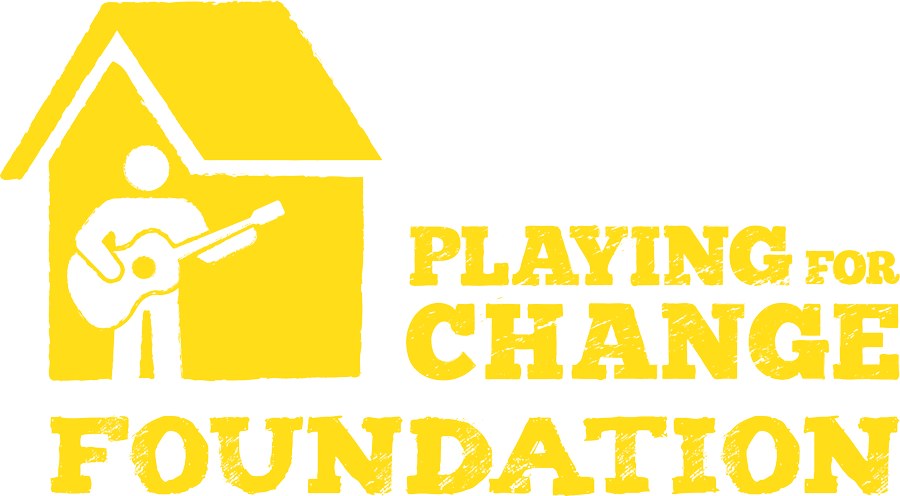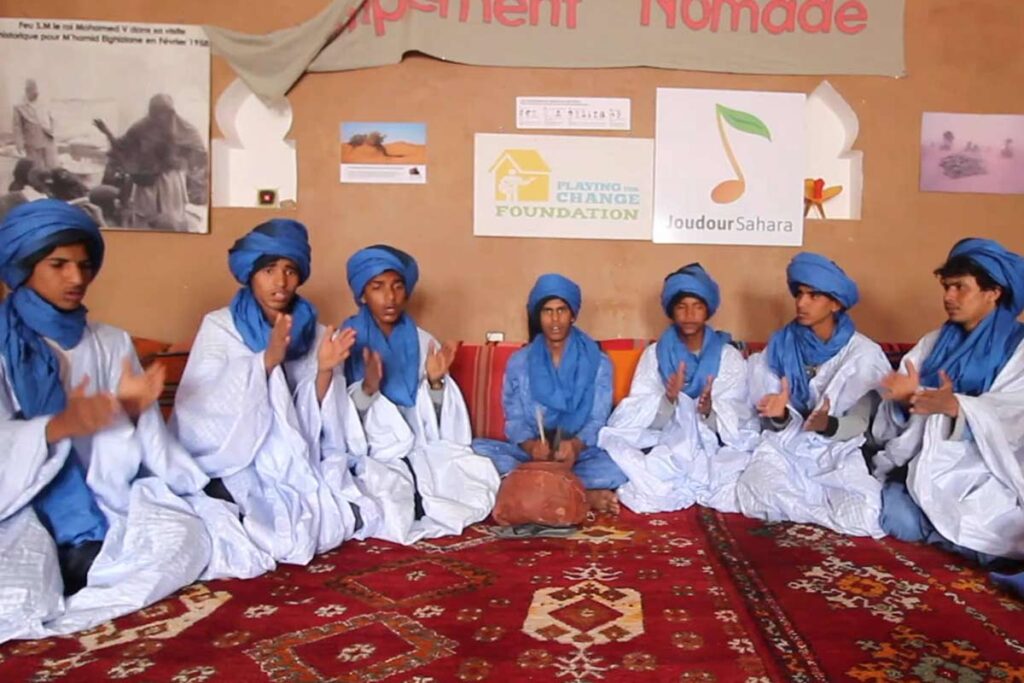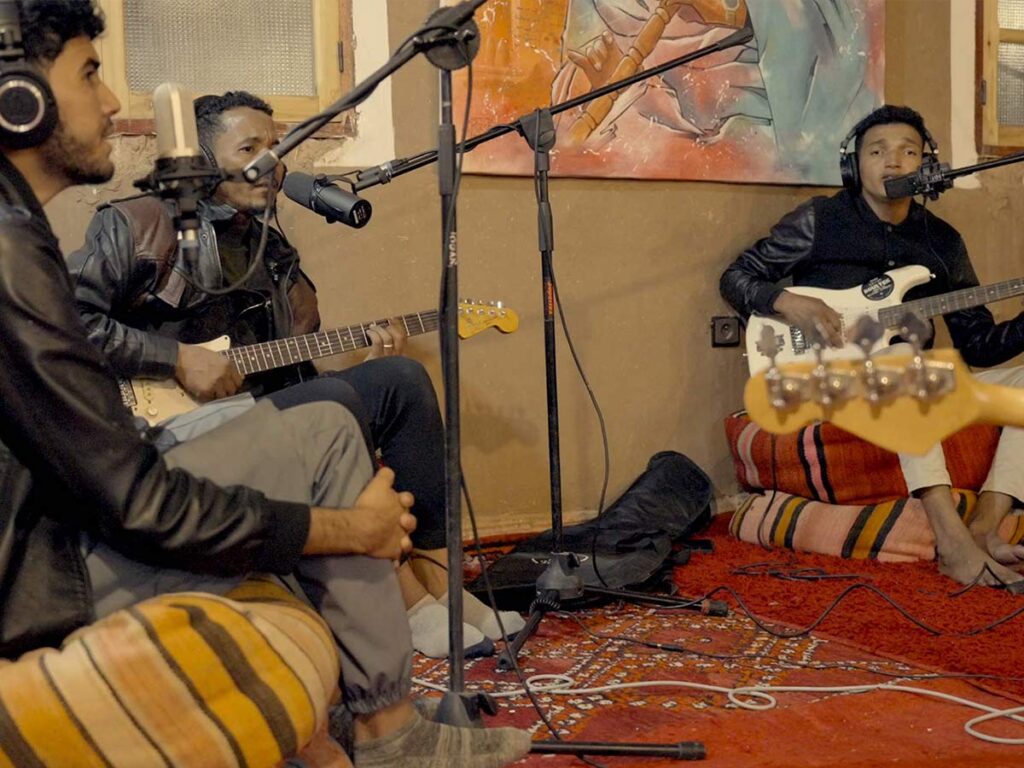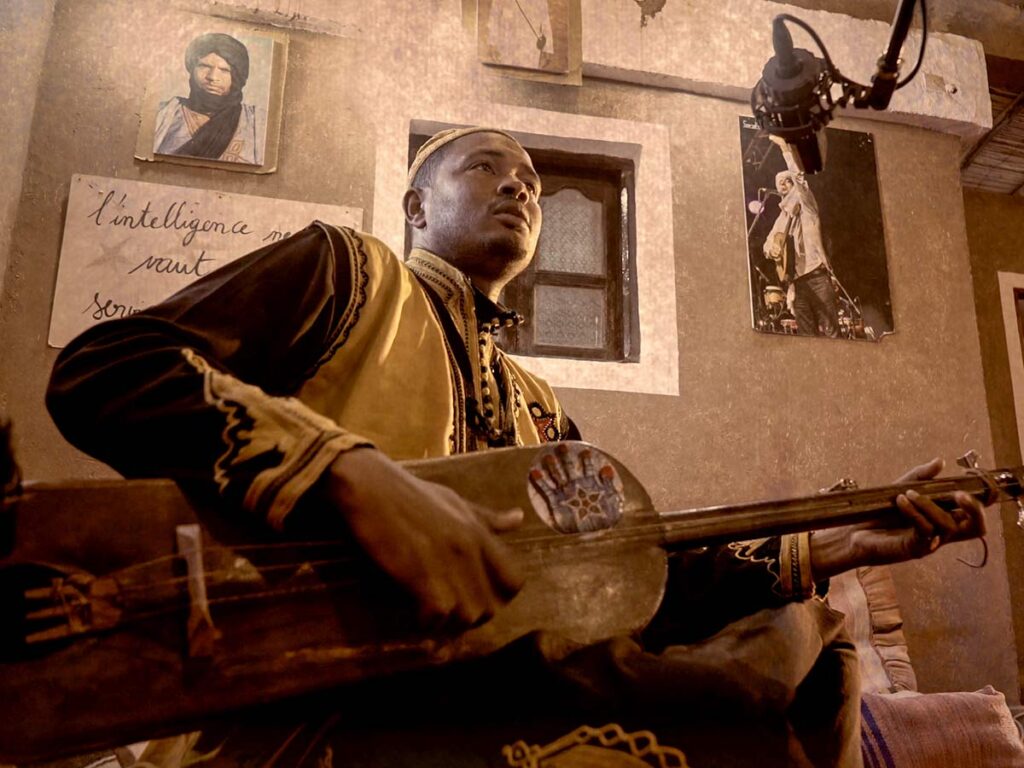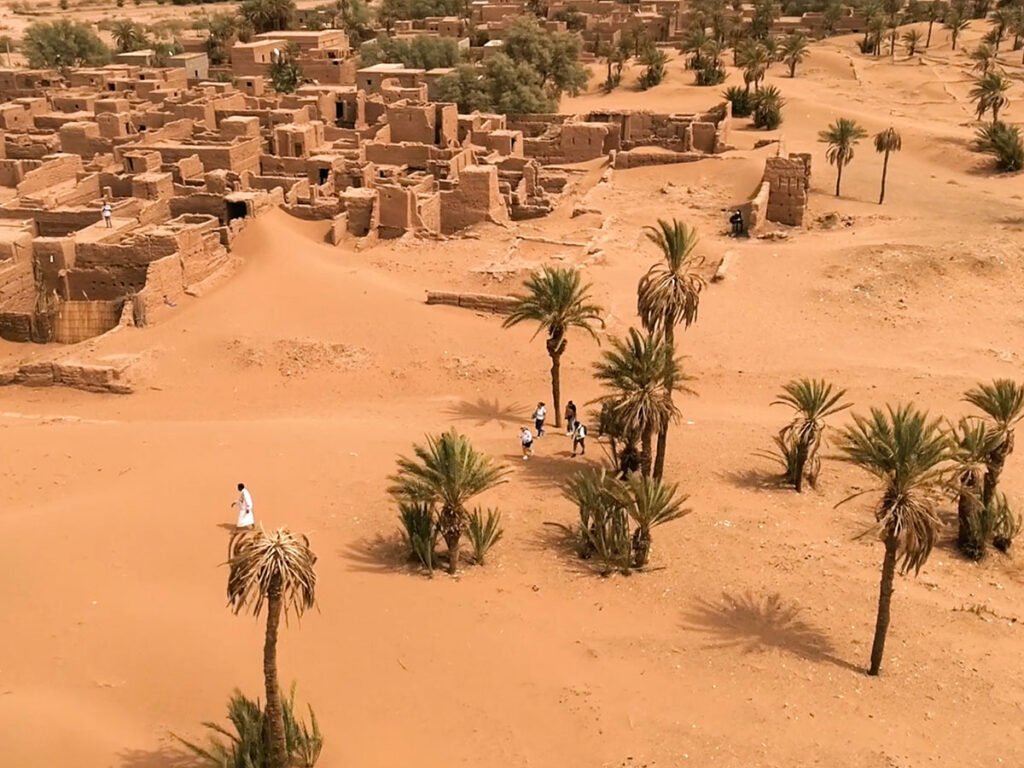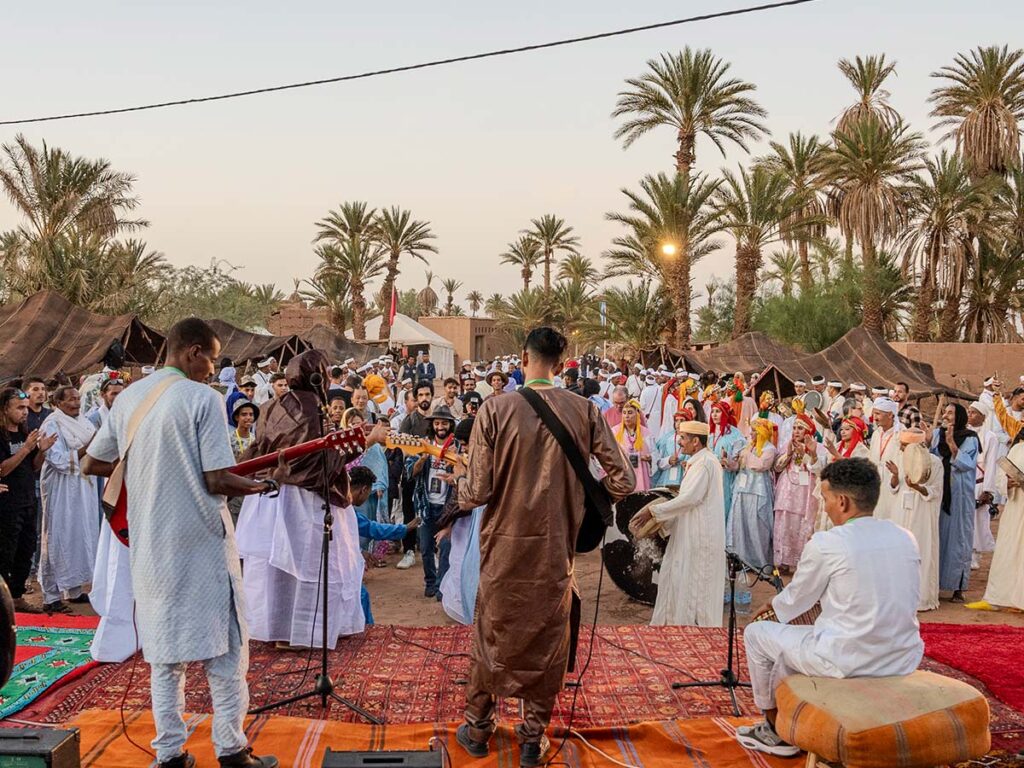Joudour Sahara Music Program, Morocco
The preservation of traditional culture is one of the biggest priorities at our program in M’hamid El Ghizlane. M’hamid is a multi-ethnic, multi-lingual, and multi-cultural community in the Sahara desert comprised of different ethnic tribes who originated from various parts of Saharan and Eastern Africa, Sub-Saharan Africa, and the Middle East. Each tribe has been able to pass down ancestral cultural knowledge from generation to generation, knowledge which is at risk of dying due to many factors.
Through a grant that Joudour Sahara received from the U.S. Consulate in Casablanca, we have been able to push cultural preservation activities to the front of our programming. Our youth have undergone different workshops led by musicians from different tribes. Our youth themselves come from different tribes, and several of them belong to the Sahraoui tribe of Arab origin. The underwent several workshops led by traditional Sahraoui musicians, who taught our youth how to perform Chamra music and the choreographed dances that accompany it.
Chamra music has been performed by Sahraoui tribe for centuries throughout the Sahara desert, as the Sahraoui people were nomadic and roamed among Morocco, Algeria, Mauritania, and Mali. It is traditionally practiced in the desert at sun-down and is performed by a circle of semi-circle of men who surround one or more female dancers. There are different dances that are specific to the men and the women.
Here you can see our youth perform Chamra music and dance, and see some video of the traditional workshops led by Sahraoui musician Mostafa Balla.
One of the biggest impacts of this grant from the U.S. Consulate isn’t just the traditional workshops, but it has allowed us to engage traditional musician from around the region who are now ready to lead more cultural preservation work with our youth into the future.
This Is What Change Looks Like.
